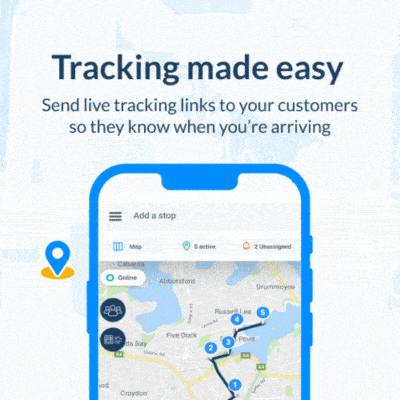Improving customer satisfaction through delivery management is a must for businesses wanting to enhance their overall revenue generation and brand reputation.
In this article, we’ll go over the advantages of using delivery management software, enhancing delivery routes, utilizing real-time tracking, and enhancing customer interaction. Businesses can not only meet but also surpass consumer expectations and create enduring relationships with their clients by putting these tactics into practice.
What is effective delivery management
The process of successfully delivering goods or services to consumers in a timely way is referred to as effective delivery management. It entails overseeing all aspects of delivery, including order processing, inventory control, shipping, tracking, and delivery confirmation.
Delivering goods on schedule and in good shape to clients encourages their trust and loyalty, boosts their level of happiness, and increases the likelihood of business success.

Improving customer satisfaction through delivery management
Improving customer satisfaction through delivery management can be made possible when understanding customer expectations and having an effective delivery management system.
Understanding customers expectations
Understanding customer expectations is important before going into the mechanics of delivery management. Customers expect to receive their products in a timely and precise manner.
Additionally, they demand openness and dialogue throughout the delivery process. For a firm to be successful in retaining existing customer loyalty and expanding its customer base, it must successfully meet these expectations.
Effective delivery management
Businesses must use efficient delivery management to meet client expectations. This entails preparation, implementation, and ongoing improvement. Businesses must arrange and route deliveries during the planning phase to guarantee prompt and accurate delivery. Furthermore, they need a back-up strategy in case of unforeseen circumstances.
Businesses must offer real-time tracking during the execution phase so that customers can keep track of their delivery. To guarantee that the consumer has received their order, they should additionally offer delivery confirmation. Finally, companies need to keep streamlining the delivery management process. To optimize upcoming deliveries, this entails reviewing delivery statistics and taking consumer comments into account.

Benefits of effective delivery management
Any business that deals with the delivery of goods or services must have effective delivery management. Along with helping firms satisfy customer expectations, it also offers a number of advantages that may have a favorable financial impact. Listed below are a few advantages of efficient delivery management:
Improved customer satisfaction
Increased client satisfaction is one of the key advantages of efficient delivery management. Consumers want their products to be delivered accurately and on time, and when a firm is able to do so, it improves the customer experience.
A pleased client is more inclined to stick with a company, recommend it to others, and give favorable evaluations. A disgruntled consumer, on the other hand, can seriously harm a company’s reputation and cause lost sales and income.
Enhanced brand image
The brand image of a company can also be improved by effective delivery management. Customers are more likely to view a company favorably and credibly if they regularly receive their products or services on time and accurately. This may result in higher client retention rates and lower customer acquisition expenses.
Reduced costs
Businesses can cut costs associated with inefficient delivery procedures by using effective delivery management. For instance, prompt and precise delivery of goods or services to clients lowers the possibility of returns and exchanges, which can be expensive for enterprises.
Businesses can decrease fuel expenses associated with needless trips and optimize their delivery routes by using effective delivery management.
Improved operational efficiency
Effective delivery management can also boost a business’s operational efficiency. By streamlining the delivery process, businesses may manage deliveries more efficiently and free up resources for other business-related duties. An increase in operational efficiency can lead to an increase in both productivity and profitability.

Challenges of delivery management
For organizations, effective delivery management can be difficult, and there are a number of challenges they might face along the road. These difficulties include controlling large numbers of deliveries, adjusting to unforeseen circumstances, and handling delivery exceptions.
Managing high-volume deliveries
Large delivery quantities may be difficult for businesses to handle, especially during busy seasons like the holidays or sale periods. An unexpected rise in demand could cause delivery delays and disgruntled customers. To handle high volume delivery, businesses must have the tools and expertise to handle the growing demand. This can require investing in additional delivery vehicles, employing temporary staff, or outsourcing to outside logistics firms.
Adapting to unexpected situations
Even with careful planning, delivery delays could occur due to unanticipated events like traffic jams, car troubles, or bad weather. These factors could cause delays, which might result in less satisfied clients.
To mitigate the effects of unanticipated disasters, businesses must have backup plans in place. This can mean using courier or postal services in place of standard delivery procedures, deploying backup delivery vehicles, or choosing different delivery routes.
Dealing with delivery exceptions
Delivery exceptions are failures to deliver that result in the product being returned to the sender. Poor address information, an unavailable recipient, or delivery refusal are only a few of the causes of delivery exceptions.
These exclusions could lead to higher costs for the business and disgruntled customers. To control delivery exceptions, businesses must put in place defined rules and procedures. They must effectively interact with the customers in order to immediately correct the situation. It could be necessary to reschedule the delivery, alter the address, or provide refunds.

What is delivery management software?
Software that manages deliveries more effectively for enterprises is known as delivery management software. This software offers a set of technologies that enables companies to:
- Automate delivery procedures
- Track delivery status in real time
- Optimize routes
- Interact with drivers and clients
- Collect customer feedback
Typical features of delivery management software include analytics, automatic dispatching, real-time tracking, proof of delivery, driver management, and route optimization. Tools for communication for existing customers like delivery planning and automatic notifications may also be included in some solutions.
The software solution is available to a wide range of businesses, including online retailers, shipping companies, food delivery services, and healthcare facilities. It can help businesses speed up deliveries, meet delivery timeframes retain loyal customers, and improve efficiency.

Delight customers with Locate2u
Locate2u is an all-in-one platform that can help you enhance your supply chain by improving productivity, lowering delivery costs, and delighting customer, while streamlining your the whole delivery process.
Find out more about how Locate2u can help you manage your delivery operations by clicking here!
Share this article
About the author
Founder and CEO at Zoom2u & Locate2u (ASX:Z2U). Steve has significant software development and entrepreneurial experience. Operating in the delivery space for more than 15-years, he actively contributes to the development of the industry. He has a strong focus on job management and job despatch systems.














